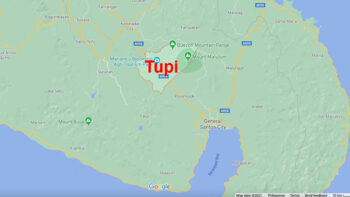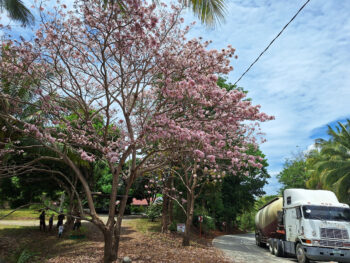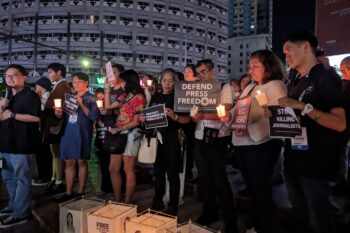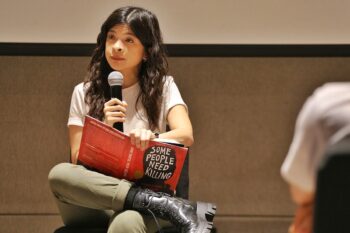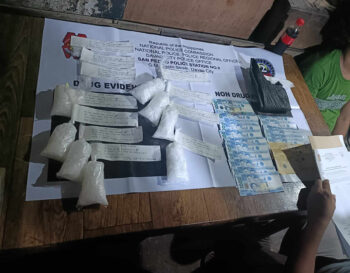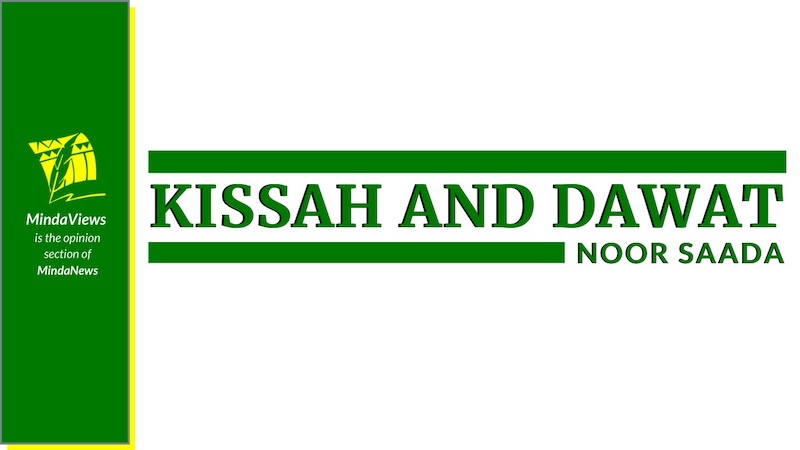
ZAMBOANGA CITY (MindaNews / 2 June)—It is graduation season in the Philippines, and during this time, Filipinos are expected to display extra generosity. Among the Sinug-speaking population, generosity is rooted in the concept of “mura,” which is equivalent to the Filipino term “bukas palad,” meaning open-handedness. Similarly, among Sinama speakers, the term “muwan” signifies giving. Hence, in Sinug, “māmura,” and in Sinama, “amuwan,” both denote the act of being generous.
Generosity is widely considered an admirable virtue, not only from ethical, cultural, and religious perspectives but also in our political landscape. A leader who displays generosity, or is “māmura,” is often preferred. In fact, in many instances, generosity can even surpass competence. This aligns with the frequently mentioned Sinug quote, “unuhun mu in ingat, bang ikutan da,” which translates to “What use is intelligence when one is stingy?”
As we approach this year’s barangay and SK (Sangguniang Kabataan) elections, there is no doubt that those who are generous, the “māmura” and “amuwan,” will have a significant advantage. Generosity has become a significant factor in politics, where acts of giving and benevolence can influence the preferences of voters. In fact, generosity can create a sense of “utang na loob” or indebtedness, giving those who exploit it an advantage on election day.
Generosity is a trait deeply rooted in ethics, culture, and religion. In the Filipino context, it is considered an ethical virtue to such an extent that individuals may find themselves in debt to uphold their reputation and avoid being labeled as stingy or “kuripot.” Similarly, among the Moro community, extravagant lifestyles and festive celebrations often mask a darker reality. The fear of being perceived as miserly drives individuals to prioritize a reputation for generosity, even at the expense of accumulating debt. Being labeled as unkind or cold-hearted is seen as a far worse outcome than being burdened by financial obligations.
In Islam, generosity is associated with fundamental pillars such as zakat (mandatory charity) and sadaqah (voluntary charity). It is also connected to amal salīh (righteous deeds) and ihsan (doing or giving one’s best). However, Islam sets limits even on generosity. Charity is appreciated when it is done with good intentions and within one’s capacity. While Islam encourages generosity, Fiqh (jurisprudence) provides guidelines on how, when, and to whom it should be given.
Zakat, as a mandatory form of charity, is required in Islam. It is imposed on savings that have been accumulated for at least a year, and the amount is set at 2.5% of the total. Fiqh identifies eight categories of beneficiaries who are eligible to receive zakat. Additionally, sadaqah should be given within one’s means and capacity. Islam views generosity as amal salīh, a righteous deed, but it does not encourage acquiring debt in the process. Intention also plays a significant role in generosity. Being generous for the sake of showing off or seeking popularity is frowned upon in Islam. Generosity in Islam primarily revolves around obedience to Allah and seeking His pleasure. The Holy Qur’an reminds believers that whatever good they spend will be fully repaid to them (Verse 272, Chapter 2: Al-Baqarah). Therefore, the intention behind acts of generosity should be solely to gain Allah’s approval rather than seeking personal gain or recognition.
Generosity, as practiced in our society, encompasses various facets. The positive aspect of being generous is that it can be seen as a strength when its intention is to assist those in need and alleviate their suffering. In doing so, we not only provide support but also foster stronger relationships by displaying a willingness to help and share with others. By extending a helping hand to one another in times of need, we promote unity and enhance social cohesion within our communities.
However, a different kind of generosity has emerged within our society. During my tenure as Assistant Secretary in DepEd-ARMM, I witnessed individuals offering money and gifts when applying for employment or seeking promotions within the agency. This represents a grave distortion of the virtue of generosity. It is nothing more than outright bribery, regardless of any attempts to rationalize it as a cultural norm. From a moral standpoint, this behavior is unequivocally wrong.
The negative side of being māmura is when it enables dependency, when those we help once or twice expect us to give or help them all the time, and in the end building a dependency on us. We all knew fellows who have been abused by those whom they support to the point the giver sacrifices his or her self-need. There is a saying that encapsulates this situation, “Mas inuuna ba ang ibang tao kesa sarili” (putting other people first before one’s self). Sadly, abusers of one’s generosity are often close relatives or family members.
Prophet Muhammad SAW has a timely warning, “The believer is simple and generous, but the wicked person is deceitful and ignoble.” (Abu-Dawud). Therefore, it is an obligation on the part of the giver to watch out for wickedness and deceit. One expecting to get employed or promoted can give monies or gifts under the pretext of being generous, it is therefore the obligation of the receiver in public office to know the difference. The abuse, manipulation, exploitation, and similar unscrupulous behaviors are tell-tale signs that generosity has taken an ugly turn. This is where we draw the line. Generosity should ultimately foster self-reliance rather than dependence on others. It should promote positive change and avoid creating dependency or exploiting others’ goodwill. If it fails to cultivate virtuous character in both the giver and the receiver, then engaging in such generosity becomes futile.
(MindaViews is the opinion section of MindaNews. Noor Saada is a Tausug of mixed ancestry—born in Jolo, Sulu, grew up in Tawi-Tawi, studied in Zamboanga and worked in Davao, Makati and Cotabato. He is a development worker and peace advocate, former Assistant Regional Secretary of the Department of Education in the Autonomous Region in Muslim Mindanao, currently working as an independent consultant and is a member of an insider-mediation group that aims to promote intra-Moro dialogue.)

